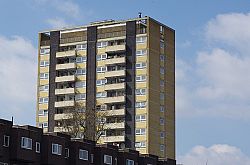

High house prices in expensive cities have been caused by the planning system's rationing of new homes in areas of high demand, according to a Report published this week. It suggests the planning system should be reformed to introduce the flexible zoning system used in Japan and some parts of America.
In the Report, Centre for Cities explores the relationship between urban economies and housing wealth in England and Wales. The Organisation found that the "restrictive planning system" has made urban homeowners in the greater South East more than £80,000 richer over the past six years than those in other parts of England and Wales.
In this region, residents tend to earn higher incomes and the planning system "fails" to match the demand for new homes. The Report says homeowners' wealth grew by over £80,000 between 2013 and 2018, this is £46,000 more than the national urban average.
In London, housing wealth increased by £122,000 during this period, while Cambridge saw an increase of £121,000. In Oxford the figure was £89,000, in Brighton it was £83,000 and in Southend it was £79,000.
In contrast, Sunderland saw housing equity increase by an average of just £3,000 since 2013 and Burnley saw an average increase of £5,000.
In total London saw in real terms an increase in housing equity of £550 billion since 2013, more than every other city in England and Wales combined, says the report.
However, home ownership rates in these cities are lower, with 66% of people living in the private housing market in the Capital owning their own home compared with 85% in Warrington. Centre for Cities explains that this means the planning system has redirected wealth to a relatively small band of mainly older homeowners and landlords in these cities. Renters, who tend to be younger, have been "penalised" in South East cities by higher rents.
Andrew Carter, chief executive at Centre for Cities, said: "our planning system is fuelling a North-South wealth divide among homeowners. Restrictive planning policies in many prosperous southern cities are gifting wealth to homeowners in the greater South East.
"This creates two wealth divides: one between homeowners in the greater South East and elsewhere in the country, and another between homeowners, who tend to be older, and renters, who tend to be younger, within the greater South East.
"The best way to address this inequality is to build more homes in the areas that have seen the biggest increases in housing wealth".
Centre for Cities makes a number of policy recommendations, including:
For more information on this subject, see: